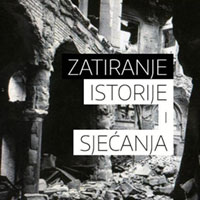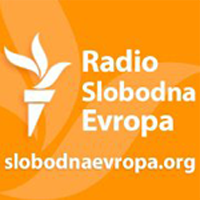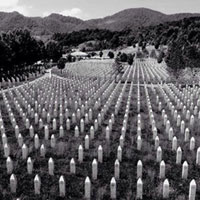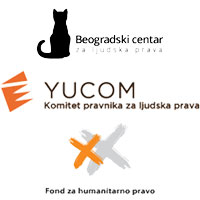(srpski) Predstavljanje interaktivnog narativa „Zatiranje istorije i sećanja“

Sorry, this entry is only available in srpski.


Sorry, this entry is only available in srpski.

 A group of youth activists from Serbia and Kosovo visited the Humanitarian Law Center (HLC) on November 15th, 2016. They are visiting the relevant institutions and organizations in Serbia and Kosovo as part of the Youth Initiative for Human Rights programme „LinKS – Linking Kosovo and Serbia“, and in the process, looking at political and social aspects of the relations between the two countries and creating recommendations for the development of their mutual relations.
A group of youth activists from Serbia and Kosovo visited the Humanitarian Law Center (HLC) on November 15th, 2016. They are visiting the relevant institutions and organizations in Serbia and Kosovo as part of the Youth Initiative for Human Rights programme „LinKS – Linking Kosovo and Serbia“, and in the process, looking at political and social aspects of the relations between the two countries and creating recommendations for the development of their mutual relations.
The HLC Outreach and Fundraising Director, Jelena Krstić, talked with the visitors about the long-lasting endeavours by the HLC to shed light on the importance of achieving justice for crimes committed during the armed conflicts in the former Yugoslavia. In reference to this, she pointed to the lack of an official strategical framework for dealing with the past, insufficiently efficient prosecution of individuals responsible for the commission of war crimes, the neglect of victims’ right to reparation, and the apathetic position of the society as a whole in relation to the crimes committed. The youth activists were particularly intrigued by the wide-spread impunity for war crimes, and they also discussed the ways in which victims of human rights violations in Serbia can acquire compensation for damages and public acknowledgment, the position of the media with regard to the crimes, the engagement of institutions, and civil society initiatives for establishing the truth about the crimes and victims.

Sorry, this entry is only available in srpski.

 The report by the Humanitarian Law Center (HLC) analyzes how are the existing mechanisms for public access to trials for war crimes applied and recommends necessary changes in the legislative framework and practice.
The report by the Humanitarian Law Center (HLC) analyzes how are the existing mechanisms for public access to trials for war crimes applied and recommends necessary changes in the legislative framework and practice.
The public’s right to know about the war crimes trials, as a minimum, includes the right to access the courtroom where trials are held and documentation of war crimes cases (indictments, judgements, transcripts and audio/video records of main hearings); the right to record a trial for the purpose of public presentation and the right to keep court records from war crimes cases. Out of the stated rights, only the right to access the courtroom and monitor the trial is strictly adhered to in Serbia and, therefore, it is not specifically analyzed in the Report. The public’s right to access relevant documents from war crimes trials is limited in practice by the refusal of courts to deliver judgments from proceedings that are not final and by excessive anonymisation of data.
The report is based on several years of practice of the HLC, that monitors national war crimes trials from the start, obtains relevant court documents and reports about them to the public.
The report “Public’s Right to Know of War Crimes Trials in Serbia” is available here.

 November 20th 2016 marks the 25th anniversary of the crime committed at „Ovčara“ farm near Vukovar, when members of the local territorial defense unit (Teritorijalna odbrana – TO) and Serb volunteers under the command of the Yugoslav People’s Army (JNA) killed 265 Croatian civilians and prisoners of war. The Humanitarian Law Center (HLC) on this occasion would like to remind the public that the trial of this case before the domestic courts has not yet been finally completed, even after more than 12 years.
November 20th 2016 marks the 25th anniversary of the crime committed at „Ovčara“ farm near Vukovar, when members of the local territorial defense unit (Teritorijalna odbrana – TO) and Serb volunteers under the command of the Yugoslav People’s Army (JNA) killed 265 Croatian civilians and prisoners of war. The Humanitarian Law Center (HLC) on this occasion would like to remind the public that the trial of this case before the domestic courts has not yet been finally completed, even after more than 12 years.

Sorry, this entry is only available in srpski.

 On 15 November 2016, the National Assembly of the Republic of Serbia opened the debate on the Bill on Amendments to the Criminal Code, which prohibits public approval and denial of genocide, crimes against humanity and war crimes, but only if those offenses have been established by the final judgment of a court in Serbia or the International Criminal Court. This would provide legal protection to revisionists of facts which have been established before the International Criminal Tribunal for the former Yugoslavia (ICTY) and the International Court of Justice (ICJ). The Humanitarian Law Center (HLC) calls upon the Members of the National Assembly to amend the proposed bill so that it includes a ban on the denial of facts established by the ICTY and the ICJ, in accordance with the domestic and international legal obligations of the Republic of Serbia.
On 15 November 2016, the National Assembly of the Republic of Serbia opened the debate on the Bill on Amendments to the Criminal Code, which prohibits public approval and denial of genocide, crimes against humanity and war crimes, but only if those offenses have been established by the final judgment of a court in Serbia or the International Criminal Court. This would provide legal protection to revisionists of facts which have been established before the International Criminal Tribunal for the former Yugoslavia (ICTY) and the International Court of Justice (ICJ). The Humanitarian Law Center (HLC) calls upon the Members of the National Assembly to amend the proposed bill so that it includes a ban on the denial of facts established by the ICTY and the ICJ, in accordance with the domestic and international legal obligations of the Republic of Serbia.

Sorry, this entry is only available in srpski.